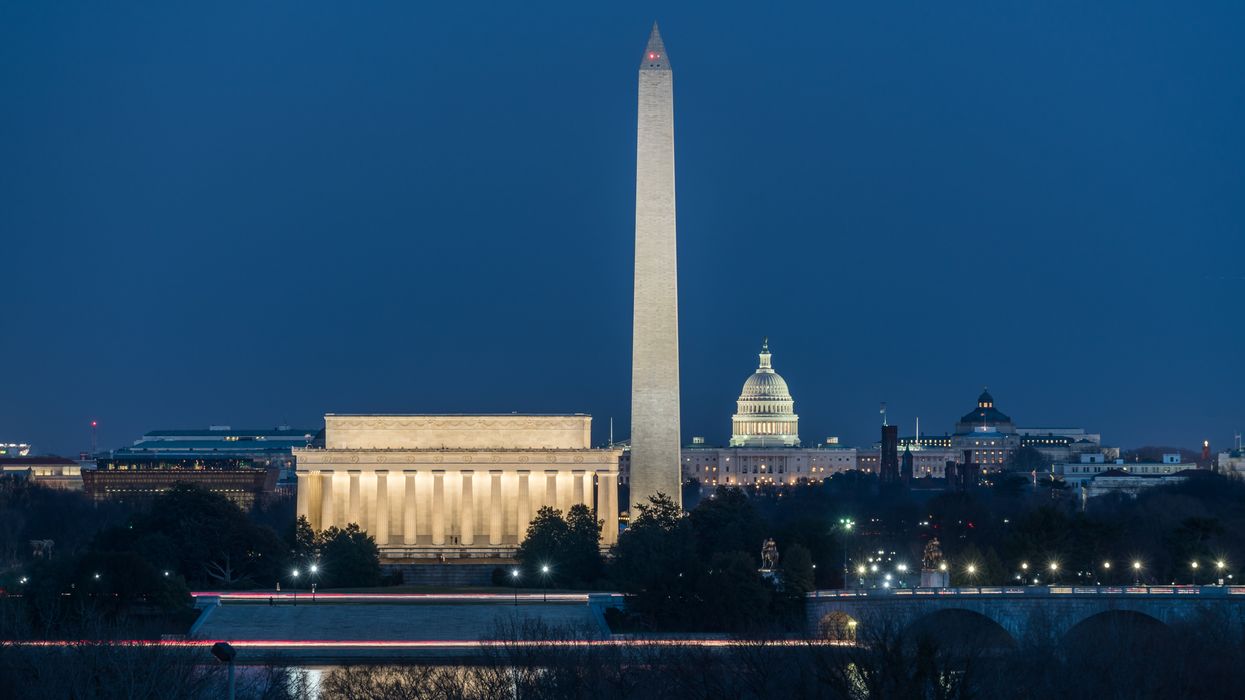Anderson was editor of "Leveraging: A Political, Economic and Societal Framework" (Springer, 2014), has taught at five universities and sought the Democratic nomination for a House seat in Maryland in 2016.
Approval ratings for Congress boomed in April, reaching 30 percent after the $2.2 trillion stimulus bill was passed. For years, though, congressional approval has been very low — even dipping to a "record" of 9 percent after a government shutdown seven years ago. Essentially, American citizens over the last generation, starting with Vietnam and Watergate, have lost confidence and trust in government.
For decades polls have shown a majority trust their state and especially local governments to solve problems. It is the federal government they judge harshly. Moreover, those who judge the federal government harshly are not the same group who want a smaller, more efficient federal government. Democrats may support a more expansive and more progressive federal government, but the vast majority join Republicans in judging the performance of the federal government as poor.
Even during the national crisis growing out of the brutal police killing of George Floyd, a natural question arises about what Americans think about government overall. Indeed, how much credence should we give to polls telling us a vast majority do not approve of their federal government or trust politicians? Yes, this is what they say. But do they really mean it? Are the questions good enough for citizens to give honest answers?
Most Americans benefit enormously from government — local and state as well as federal. But they rarely get a chance to indicate what they like:
At the national level, their Social Security checks, Medicare benefits and food stamps from the SNAP program; a Food and Drug Administration and Agriculture Department assuring the safety of what they eat; a Defense Department protecting them from foreign invasions and an EPA working to keep the air breathable and water drinkable, for starters. At the state level, transportation departments that make our roads safer than otherwise and parks where we are free to roam. At the local level, such basic services as snow removal, firefighting and trash collection.
The media has brought considerable attention to the failings of the federal government, whether it was an inability to prevent the Sept. 11 attacks, sloppy and delayed responses to hurricanes, regulations that might have staved off the 2008 financial crisis or the tepid response this spring to the spreading coronavirus.
There definitely is considerable dysfunction in Washington, but it does not follow from this reality that the federal government performs as poorly as many polls would make you think. State and local governments are not usually the target of citizen animus, although the national wave of protests during the past month have brought into focus the fierce critique the Black community has against police forces — especially at the local and state levels.
As we witness the continuing cases of excessive force by the police, we should recognize areas of our government that have failed to achieve two forms of justice: criminal justice, at the federal as well as state and local levels, and distributive justice, especially federal programs aimed at creating greater equality in housing, education and employment.
As insistent calls grow for fast systemic change to improve racial inequality in our country, and while we are seeing some critically important changes made at the local and state level in our criminal justice system — police departments banning choke-holds, for example, and redirecting funds to other agencies to ensure public safety — we should not give up on the power of the federal government to serve the people.
We must disabuse ourselves of the myth that the public, especially what the Rev. Martin Luther King, Jr. called the "white moderates," does not benefit enormously from our federal government.
For if we do not get rid of that misperception, we will not be able to harness the energy and organizational power needed to address systemic racism against Black citizens as well as serious problems afflicting all citizens, ranging from an inadequate health care system to an insufficient approach to the global warming catastrophe to our crisis in higher education.
Major changes in federal law that could combat racism, certainly concerning our system of distributive justice, will not get through Congress in the weeks ahead. A national dialogue is needed to address issues such as housing, education and employment — because, without such a sustained effort by citizens and advocacy organizations, no significant legislation that might pass the Democratic House will also get through the Republican Senate.
The parties, of course, are now fully involved in the battle to control the White House and the Capitol next year. During the campaign, it is past time for the GOP to stop making the federal government a major punching bag. It was certainly less of a target from the 1930s through the 1970s. It is time, instead, to debate the hard issues without hyperbole and simplicity, especially when there is a manifest need for strong federal support for an economy stricken by the novel coronavirus.
Something like a truce is needed with the federal government. If you don't like the concept and word "truce," then call it a transformed understanding. For if you stand for major changes — whether you are a Black citizen focused on our criminal justice system's failings or a white middle-income citizen seeking a fundamental overhaul of our distributive justice system — these will not come from alienating the very people in Washington who would write and implement the better rules.
The federal government is also a massive three-part system; it's not only the agencies of the executive branch, which take much of the abuse, but also the legislative branch at the Capitol and the judicial branch centered at the Supreme Court. Those wanting fundamental changes in our society have the opportunity to vote in November for politicians they believe could make, implement and enforce new laws and regulations.




















